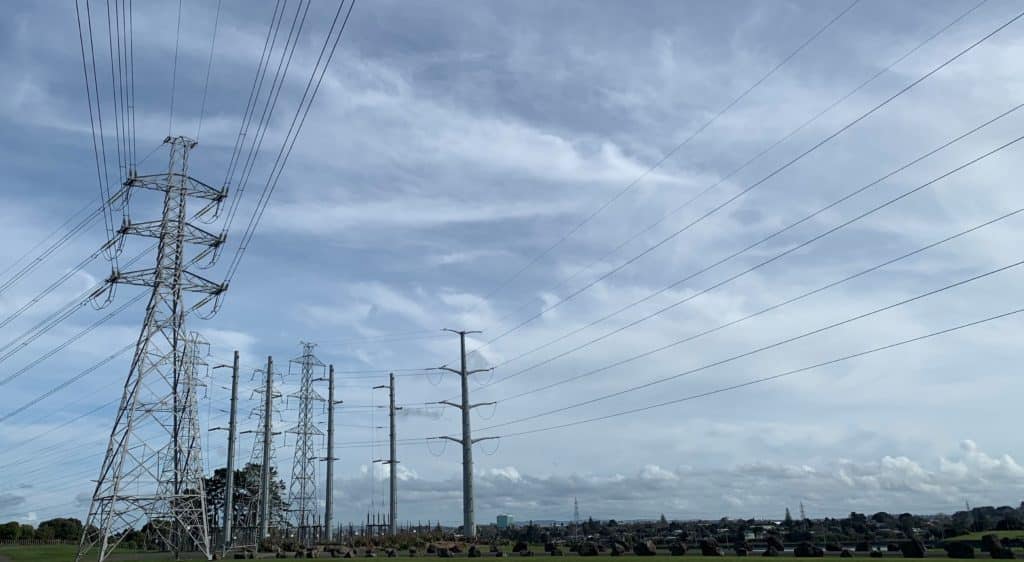
by DavidSpratt | Dec 11, 2019 | News, Planet Spratt
Behind the times in 2019. How to kill friendships and infuriate younger colleagues.
Each Christmas for the last three years I have taken the opportunity to mock colleagues, businesses, politicians and friends in the guise of a bit of festive fun. For me 2019 was a year of progressive transition to a new generation of leaders at work. This warrants a look in the mirror and into the mind of an old guy inadvertently keeping the glass ceiling firmly on top of our young talent.
“I just told you my great idea. Why are you being so difficult about it?”
Young people can be frustrating at times. Just because it’s the first idea that came into my head doesn’t make it wrong. Years of experience count for a lot when it comes to the important calls.
A conjoint Bachelor of Commerce and Engineering with First Class Honours doesn’t mean anything in the real world. It’s all theory, no practice. Degrees are for nerds.
“I can’t delegate. Last time I did that you did it all wrong. It’s quicker to just do it myself.”
Do it yourself and do it right that’s what I say. Young people are in such a rush, they are always making mistakes. You can see from the huge smiles on their faces just how relieved they are when I jump in with a few helpful suggestions. Mentoring is so satisfying. If only people would listen more.
“My Tesla was keyed in the supermarket car park. What did I do to deserve that?”
I don’t know what you are complaining about. We did it tough too. Interest rates were 25% when I was your age. I know a million-dollar mortgage sounds daunting, but you must start somewhere. Soon you will own a bunch of rentals just like me. It’s just a question of putting in the hard yards.
Oh yes. Just a reminder that the wife and I are away in Queenstown next week for a bit of bungy jumping and jetboating. It will be such a relief after the hustle and bustle of the Rugby in Japan. That final was amazing. Nothing compares to being there live. You really should try it.
“I know I said Tuesday, but other priorities came up. How about a week Friday?”
Everyone is in such a hurry these days. How can it be a bad thing to take an afternoon power nap? Grab me a coffee will you?
It’s PC gone mad I tell you
Spare me your mamby pamby, trendy lefty, climate warrior, sustainable vegetarian clap trap. Global warming is a myth. Haven’t you read the latest report from the oil and coal industry’s expert panel on climate denial?
“That’s enough of me talking about me. Let’s talk about you. What do you think of me?”
Maybe that story of how I was involved in building New Zealand’s first private “fibre optic network” (imagine my fingers in the quote position) is getting a little tired? What about the one about when I once closed a deal for a million dollars by saying nothing to the client and just listening? Perhaps I should do more of that?
It should be the fate of baby boomers to spend eternity in hell repeating work war stories and tales of the good old days. You can almost taste the resentment as we point out millennials inadequacies. They will surely realise how wrong they are after a few more years as understudies.
Merry Christmas and Happy New Year readers. Stay safe and rest well. Try a power nap. They are really refreshing!

by DavidSpratt | Nov 5, 2019 | ICT
Total Utilities is proud to have been nominated as a finalist in the 12th annual Microsoft New Zealand Partner Awards. These awards reveal the capability and influence that Microsoft Partners have in empowering customers to create real change and value.
As a business we have been known for a number of years for vendor-independent business consulting which enables our customers to make informed and contestable decisions in relation to their migration to Cloud computing.
Once the customer embarks on that journey it is crucially important to have the right governance in place to control costs and realise the value promised in the original business case.
Total Utilities has developed analytics that ensure our clients gain the value from their cloud environments and provide insights to help save money.
“Being finalists for the 2019 Microsoft Partner ‘Optimising Operations Award’ is a significant milestone for Total Utilities as it means we are now also gaining recognition for our independent, innovative and inexpensive Cloud FinOps service which provides that financial governance.”
– Kelvin Sargeant

by DavidSpratt | Oct 22, 2019 | Energy
Our national grid pricing needs solutions. And after 10 years of pondering its navel, the Electricity Authority (EA), the Government agency charged with ensuring an efficient and effective electricity industry, plans to release a paper that may or may not gain industry consensus and may or may not actually be the right answer.
A decade in, the EA claims it is past the point where it is seeking an industry consensus, and advises that “you’ll have to show a factual error in our assumptions to change our views.”
This paper attempts to address the question, who pays how much for the right to access the electricity transmission backbone that is the national grid.
Just how we derive economic efficiency by perpetuating monopolies, stifling innovation and transferring the costs of transmission to regional small businesses and consumers, is beyond me.
This backbone is owned and operated by a Government-owned monopoly called Transpower, and connects our generation assets to the whole country.
The trouble with essential monopolies like the national grid is that they exert enormous political influence. Combine this influence with that of other essential monopolies such as the electricity generators who own our hydro dams, and massive energy consumers like the Bluff aluminium smelter, and the EA’s findings are wholly predictable.
This draft report, citing “economic value created”, suggests transmission costs be moved away from certain major users – notably the Bluff aluminium smelter – and should instead fall most heavily on domestic consumers and small businesses farthest from the point of generation. Meanwhile the hydro dam owners (the generators) will continue to utilise the transmission network without paying anything like the true cost of doing so.
When justifying their recommendations, the gurus at the Electricity Authority have estimated net economic benefits to all parties involved in the electricity market, of between $200 million and $6.4 billion by 2049. There are clear signs of an agency that has lost track of the most basic financial disciplines, when they can seriously suggest that a business case benefit that has an estimated range of $6.2 billion over 30 long years is somehow rational rather than looking suspiciously like a complete guess.
Virtually all these barely-credible benefits are assumed to come via increases in market efficiency. Just how we derive economic efficiency by perpetuating monopolies, stifling innovation and transferring the costs of transmission to regional small businesses and consumers, is beyond me.
Disincentives to use the national grid
The EA’s proposed pricing mechanism builds in disincentives for those seeking to find alternative methods of transmitting, storing and using electricity. The EA will do this in the following two ways:
- By offering special discounts to people considering using innovations such as battery and solar to avoid using the grid. These discounts will be funded by transferring these costs to other consumers (in other words, not by reducing Transpower’s profits); and
- By reducing peak load pricing. This is the mechanism whereby we pay more for electricity transmission at times when the grid is most heavily used: think winter cold snaps and dinner time. Peak load pricing offers a price incentive to those who want to store and use their own electricity at a time when it is most expensive on the national grid. No peak load pricing, no incentive to innovate.
The national grid was bought and paid for over decades by all the taxpayers of New Zealand. This asset was designed to reliably transport one of our most essential services, electricity, and to share the costs evenly to the benefit of all.
Perhaps the Electricity Authority should be paying more attention to mechanisms and policies that have seen electricity prices soar over the past two decades, instead of continuing this futile, decade-long attempt to fix a transmission pricing problem that didn’t exist in the first place.

by DavidSpratt | Oct 17, 2019 | News, Planet Spratt
This isn’t an easy article to write. I am over 60 years old and have had a wonderful, successful life full of variety, excitement, joy and challenges. Throughout, I have seen myself as a solid kind of person with an optimistic view of the world and a generally even temperament. Now I find myself admitting to the world that I am not bulletproof after all.
A few weeks ago, I was juggling some pretty big issues at work, at home and in the political realm. That’s not unusual in my world, and for many of us in business this is very much part of our day-to-day lives. The difference this time was that I began to feel overwhelmed by the enormity of it all.
My symptoms were a mixture of shortness of breath, heart palpitations, anxiety and if I am honest, no small sense of panic. Just like when I get the man flu, I retreated into my mental man cave and hid while I ignored my beloved’s repeated question, “Are you feeling okay?”
My colleague and friend, Richard, recently spoke to me about the deep responsibility he feels for the 11 families that rely on our business’s continued success. He spoke of the need to put food onto the tables of these families and our obligation to provide a safe and supportive environment for everyone.
Thousands of us also carry this responsibility and willingly accept the burden that comes with it. Leadership can be a very lonely place, though. If we are taking care of all those around us at home and at work, just who do we turn to when we need support?
Admitting need
My first step was to summon up the authenticity to tell my wife how I was feeling. Before I spoke, I thought she would freak out and take on all my fears of inadequacy, failure and ultimate doom (yes I was really feeling sorry for myself that day). Instead, she just listened and reassured me and held me in her arms as I spoke, possibly for the first time in years, about my deepest fears. Then she insisted I do two things:
- Talk to my doctor
- Talk to someone I trusted
These were, not surprisingly, hard conversations, but nowhere near as hard as I thought they would be.
I am now practicing using some tools that I have been given to help me handle the inevitable stressful situations that arise in my daily life as a husband, father, grandfather, company director and elected trustee. I find myself living in the moment more. I play with my grandsons more often and say, “Yes,” to new experiences.
The tools give me the strength to lead when I feel alone, and the peace to accept that I am not actually perfect after all. It’s a good place to be.
Never too old to suffer
Running or owning businesses, leading teams or just being a loving partner or parent can be tough. We do it because we get satisfaction from what we do and because we love those who are closest to us. On occasions, though, the responsibilities can be heavy, and the challenges can prove to be very difficult to overcome.
Everyone deals with stress in their own way and it turns out that even a 60-year-old needs to learn new tricks sometimes.
Readers may be having all sorts of responses to this article. I usually like to keep it light and to focus on the nerdy technical things that I enjoy so much.
I do have one question though. Are you feeling okay?

by DavidSpratt | Aug 14, 2019 | Energy
“A society grows great when people plant trees whose shade they know they will never lie in.” – Greek Proverb
I spent the best part of Saturday planting trees, flaxes, and ferns along a stream bank with my son, Tom, and his best mate. The task was “wholesome” according to Tom, as the plantings should facilitate the recovery of a stream that was once badly polluted but now runs mostly clear following positive steps by my dairy farmer neighbor to abide by the Fonterra clean stream accords.
As I patted my own back for my newly enhanced green credentials, I turned my thoughts to the wider question of how governments wrestle with the challenge of leaving behind a better place for our grandchildren.
As part of its efforts to reduce emissions, the Government asked the Interim Climate Change Committee to provide advice on planning for the transition to 100 percent renewable electricity by 2035. The Government has also set a target for New Zealand’s economy to produce net-zero emissions by 2050.
Admirable goals, for sure, but does this approach stack up? When I run the numbers it is questionable whether going after more renewable energy is even worth it beyond a certain point.
Hang on a minute
At current rates of clean energy build, New Zealand should reach around 93 percent renewables by 2035, well short of the target set by the current Government. Going faster towards renewables would come with an uninviting economic burden. It is unlikely we will see much public demand for more hydro dams, so we are likely to be building out solar, wind and geothermal sources of energy. This would prove very costly on a national scale.
The closer we get to a reliance of 100 percent renewable energy, the more expensive it becomes to generate each unit of additional power. It’s a law of diminishing returns. The net result is that the consumer will end up paying ever-increasing energy prices as we strive for ecological nirvana.
The Government could, in this scenario, tax fossil fuels at an ever-increasing rate to keep electricity competitive, while passing laws that force consumers to switch. In the end, this would be political suicide and a market-distorting approach that could yield all sorts of unintended consequences.
Light bulb moment
On the other hand, fossil fuels used in transport and process heat offer a sensible, more economic option for change. These activities account for six times the greenhouse gas emissions of electricity production. Under this scenario, electricity prices would remain affordable and the emissions savings would be substantially higher from day one.
It was with this in mind that the Commission recommended that the Government amended its 100 percent renewal electricity future vision for the more realistic and attainable transport and process heat transformation approach. It is telling to note that this approach also offers incremental benefits, with every new electric vehicle or process heat facility reducing emissions on day one and into the future.
There are three major initiatives recommended by the Commission that, as I see them, make economic sense and deliver positive results in the short-, medium- and long-term. Those sensible recommendations are:
- Phase-out of fossil fuels for process heat by deterring the development of any new fossil fuel process heat, and setting a clearly defined timetable to phase out fossil fuels in existing process heat facilities.
- Set a target and develop incentives to reduce emissions from transport by converting to electric vehicles.
- Investigate the potential for pumped hydro storage to eliminate the use of fossil fuels in the electricity system.
Meanwhile, I am off to plant another tree or two. My great-grandchildren might enjoy it’s shade one day.







